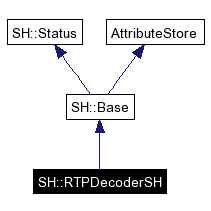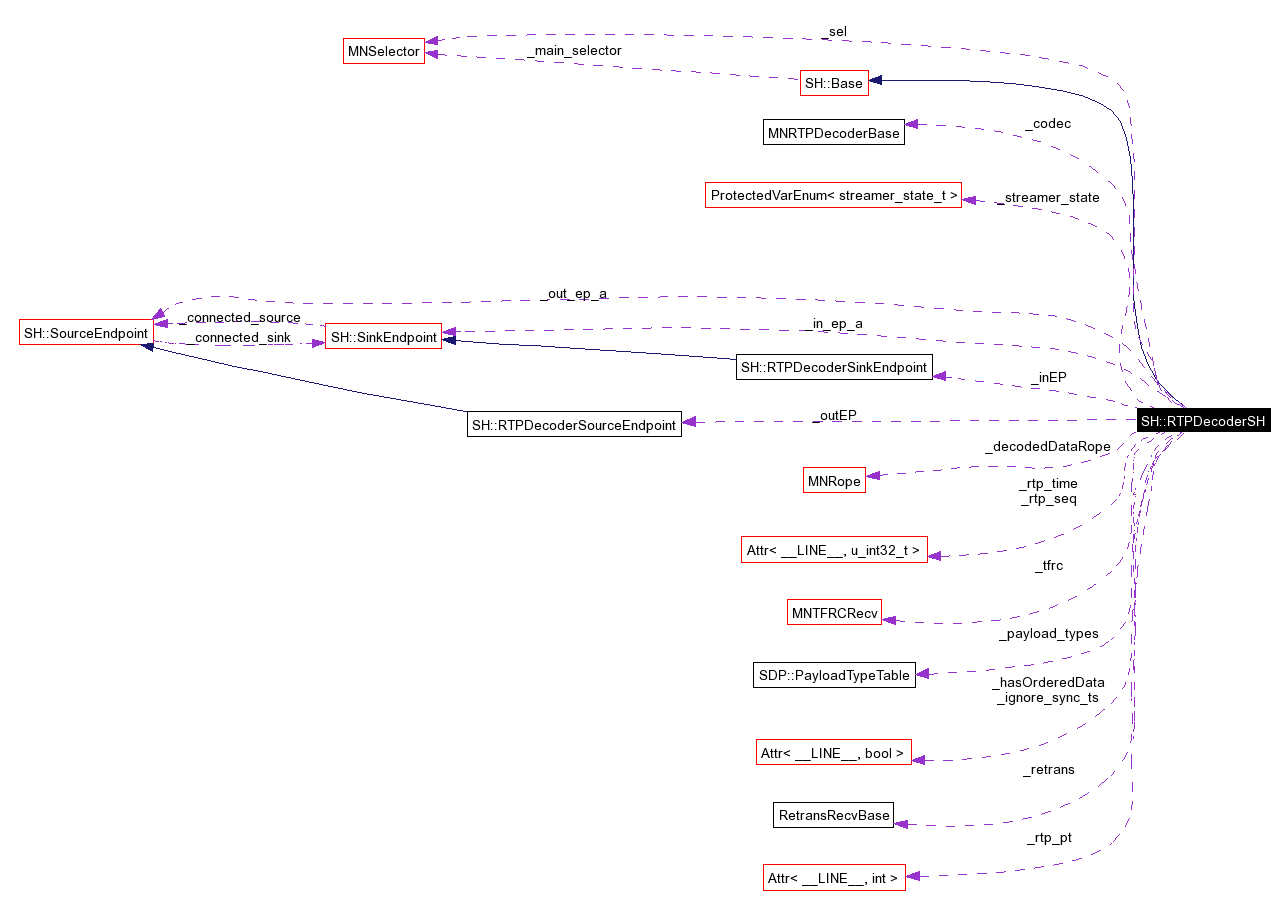
#include <MNRTPDecoderSH.h>
Inheritance diagram for SH::RTPDecoderSH:


It takes the configuration attributes
|
||||||||||||||||
|
|
|
|
|
|
||||||||||||||||
|
In the non-LC case, packet processing needs on calling of the decoding functions. In the LC case, this function is called because lists need to be updated and the bytecount must be maintained. When this function is called, the packet will not contain the payload any more. The reason is that this function is called in a loop until all payload is consumed by the decoder, but extracting from the packet is possible only once.
|
|
||||||||||||||||
|
This function is similar to evalLCRTPPacket, with the difference that a different data structure SHRTPData is set up containing timing and synchronization information together with the decoded block of payload. The function will also collect fragments by saving decoded data in a member rope until the payload decoder tells a frame has been completed. Decoding is done by calling evalLCRTPPacket so hopefully none of LCretrans stuff will be broken.
|
|
||||||||||||||||
|
This function evaluates the NTP timestamp contained in the RTCP packet in relation to the RTP timestamp (also in RTCP). Doing so, a wallclock time for presentation can be derived.
|
|
||||||||||||
|
This function calculates the presentation time of a frame from RTP and, if available, RTCP timestamps.
|
|
|
Provide a list of valid sink endpoint specifications to the graph manager.
Implements SH::Status.
|
|
|
Provide a list of valid source endpoint specifications to the graph manager.
Implements SH::Status.
|
|
|
Reimplemented from SH::Base.
|
|
|
Indicate whether a sufficient number of endpoints are connected for the stream handler to be active. Implements SH::Status.
|
|
|
|
|
|
|
|
||||||||||||
|
|
|
|
reset the presentation timestamp Darwin server (maybe others?) rearranges RTP timestamps after seeking |
|
||||||||||||
|
|
|
|
Some decoders, above all of dynamic payload types, need information given in the payload type table. Thus, this table must be set here to be instantiated with the decoder factory.
|
|
|
Reimplemented from SH::Base.
|
|
|
Reimplemented from SH::Base.
|
|
||||||||||||
|
|
|
|
Reimplemented from SH::Base.
|
|
|
|
|
|
|
|
|
|
|
|
|
 1.3.8
1.3.8